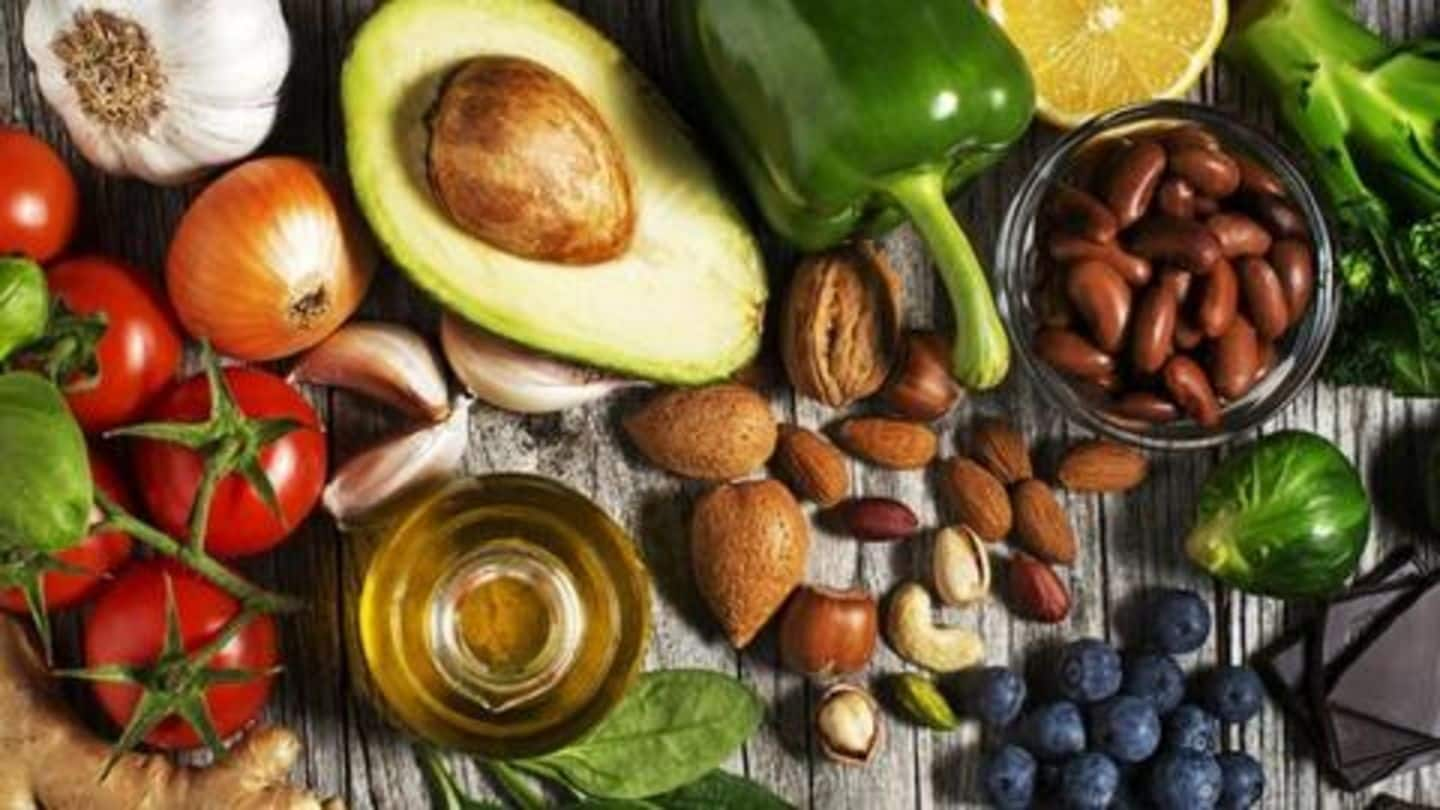
Vegan Keto diet: What to eat, what to avoid
What's the story
You have probably already heard of the Ketogenic diet, one of the hottest diet buzzwords. The Keto diet encourages increased consumption of healthy fats, and lower intake of protein and carbohydrates. Although the Keto diet recommends a lot of meats, it still has plenty to offer to vegans. Here's what you should and shouldn't eat on a vegan Keto diet.
Mechanism
But first, how does the Keto diet work?
The Keto diet is a low-carb, high-fat diet, that aims at drastically reducing carbohydrates intake, and replacing it with fat consumption. Such reduction in carbs leads your body to a metabolic state, known as ketosis. This further helps your body to efficiently burn fat for energy. Additionally, it converts fat into ketones in the liver, thus contributing to energy supply to the brain.
Information
Benefits of the Keto diet
The Keto diet is known to offer various health-boosting benefits. It can help reduce blood sugar and insulin levels in the body, and promote healthy weight loss. It might also reduce risk of major health issues like cancer, heart disease, Alzheimer's, epilepsy, and Parkinson's.
#1,2
What to eat: Top five Keto foods for vegans
Nuts and Seeds: Rich in healthy, mono-unsaturated fats, and low on carbohydrates, crunchy and delicious nuts and seeds are a great pick for vegans who wish to follow a Keto diet. Some of the best available options are walnuts, Brazil nuts, pine nuts, peanuts, almonds, sesame seeds, chia seeds, among others. Furthermore, they can also help reduce bad cholesterol (LDL) levels in the body.
Information
#3: Leafy green veggies
Aim to include as much of low-carbs, leafy green veggies in your daily diet as possible. Some of the best buys are celery, cucumber, spinach, cauliflower, cabbage, broccoli, among others.
#4,5
Avocado and Coconut oil
Avocado: Avocado can be a great addition to a vegan Keto diet, as it contains good amount of healthy fats, while being considerably low on carbohydrates. It is also rich in potassium, magnesium, and other essential nutrients. Coconut oil: Rich in fatty acids, and low on carbohydrates, coconut oil can help you shed unwanted kilos. Coconut milk, coconut water are also good options.
Information
Other healthy picks
In addition to the above-mentioned food items, you should also look to increase your intake of all healthy oils (olive oil, avocado oil), non-starchy veggies (read broccoli, cauliflower, peppers, mushrooms), berries and condiments (spices, salt, herbs).
What not to eat
Foods to avoid, when on a vegan Keto diet
When on a vegan Keto diet, obviously you need to completely cut your consumption of foods like meat, poultry, dairy, eggs, and seafood. Also, since you need to reduce your carbs consumption, try to avoid foods items like grains and starches, sweeteners, sugary drinks, beans and legumes, most fruits, high-carb alcoholic drinks (read beer and wine), and high-carb sauces and condiments.
Side effects
The other side: Side effects of the Keto diet
When switching on to a Keto diet, there might be some side effects, as your body takes time to adapt. This is known as the Keto flu. Symptoms include poor energy, improper mental function, increased hunger, sleep issues and nausea. To minimize these effects, you may try a low-carb diet for the first couple of weeks before turning to a completely zero-carb diet.